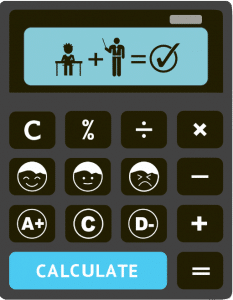Overview
In year 5 maths, you will come across word problems on various topics. To excel in solving word problems, it’s crucial to establish a connection between the given and the missing information.
In this article, we will explore some of the common types of word problems you may encounter in year 5. The problems are solved, but you should not look at the solutions until you have tried them on your own.
Learning Outcomes
By the time you finish reading this article, you will get an idea of some of the different types of word problems you could come across in year 5 maths. Topics covered in this article include:
- Multi-Step word problems
- Fraction word problems
- Money word problems
- Perimeter and Area word problems
Multi-Step Word Problems
Example 1:
A group of 5 students and 2 teachers are planning a field trip to a museum. Student tickets cost $6, and adult tickets cost $10. The group has already collected $35. How much more money do they need?
Solution:
To find out how much more money the group needs, we first need to find out how much will the museum tickets cost in all.
Student tickets will cost 5 x $6 = $30
Teacher tickets will cost 2 x $10 = $20
Total cost of tickets = $30 + $20 = $50
As they already collected $35, they need another $50 – $35 = $15
Example 2:
Mr. Lee has 6 boxes of crayons with 12 crayons in each box. He plans to distribute the crayons equally among 5 students in his art class. How many crayons will each student receive? How many crayons will be left over?
Solution:
To find out how many crayons each of Mr. Lee’s 5 students will receive, we first need to find out the total number of crayons he has.
He has 6 x 12 = 72 crayons.
As 72 \(\div \) 5 = 14, with a remainder of 2, his students will receive 14 crayons each, and there will be 2 crayons left over.
Fraction Word Problems
Example:
There are 30 students in a class. One-fifth of the students are absent. How many students are present in the class?
Solution:
Look, there are two ways to solve this problem. Let’s explore both ways.
Method 1
Let’s find the number of students that are absent. Once we can find that out, we can subtract that number from 30 to find the number of students that were present.
Number of students absent = \(\frac{1}{5}\) of 30 = 30 \(\div \)5 = 6
Therefore, number of students present = 30 – 6 = 24
Method 2
In this method, we will first find the fraction of the class that was present and then find that number.
If \(\frac{1}{5}\) of the students were absent, then \(1-\frac{1}{5}\) of the students were present.
Fraction present = \(1-\frac{1}{5}=\frac{5}{5}-\frac{1}{5}=\frac{4}{5}\)
\(\frac{4}{5}\) of 30 = \(30\div 5\times 4\) = 24
Money Word Problems
Example:
Sofia has $12.50 with her. She buys a pack of colour pencils for $2.95 and a pack of erasers for $1.99. How much money does she have left with her?
Solution:
The plan here is to add up the two costs (pencils + erasers) and subtract that amount from $12.50 (the amount she initially had).
$2.95 = 295 cents and $1.99 = 199 cents
295 cents + 199 cents = 494 cents
The amount Sofia initially had = $12.50 = 1,250 cents.
Therefore, after buying the items, she has 1,250 cents – 494 cents = 756 cents.
So, the amount left with Sofia = $7.56
Perimeter and Area Word Problems
Example:
A rectangular tank is 12 metres long. The area of the base of the tank is 96 square metres. What is the width of the tank?
Solution:
Here, we know the area of a rectangle (the base of the tank) and its length. We need to find the width of the rectangle.
We also know that for a rectangle, area = length x width
Therefore, width = area \(\div \) length = 96\(\div \)12 = 8 metres
Wrap Up
Word problems are a crucial part of our everyday lives, and understanding how to solve them is an essential skill that we all need. Whether we are calculating our grocery bills, budgeting our finances, or measuring the ingredients for a recipe, we are constantly using maths to make sense of the world around us.
Mastering the art of solving word problems requires constant practice. If you are running short of problems and need more problems to practice, get in touch with us today!






